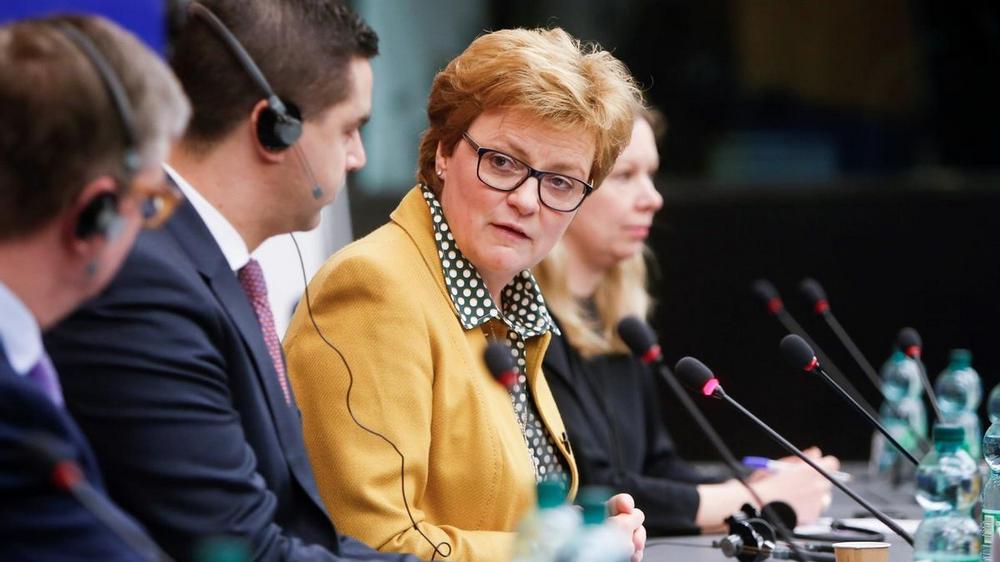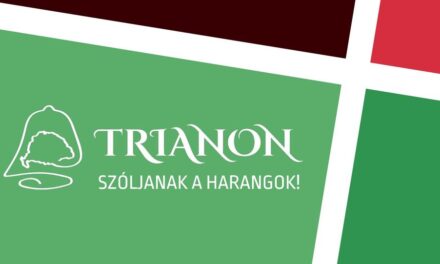What happened at the committee meeting of the European Parliament reminds me of other times, but certainly not of democracy
- said business lawyer Arne Gobert, president of the German Business Club, on Tuesday in Brussels, after the Budget Control Committee (CONT) of the European Parliament launched a new attack against our country citing complaints from German companies in Hungary.
Instead of the EP committee, Arne Gobert finally told the press that as a businessman living and working in Hungary for twenty-five years, he wanted to share his experiences with European politicians. As he said, before the meeting
he had a short, five-minute conversation with Monika Hohlmeier (European People's Party), CONT president, who, however, refused him the opportunity to speak. The German politician justified the rejection of Gobert's request by saying that he "already has enough information about the situation in Hungary".
Gobert emphasized that the preliminary information material sent out by CONT was extremely biased. He wanted to say that every year more German companies are investing in Hungary and that they are generally satisfied with the mutual cooperation.
In my opinion, there is no negative opinion of Hungary at all. We do have industries where there are disputes over certain issues, but I believe that these issues, if they are really important, should be taken to court, not to EP committees
- pointed out the German expert.
He also recalled that a German company was mentioned in CONT's information, which did not receive a construction permit. In this case, however, there is no legal dispute, there is no official case, so we are talking about hearsay statements and accusations. And this is not enough here - the lawyer pointed out.
Regarding the cooperation between the Hungarian government and German industrial players, Gobert said that "there are disputes in every country, which is normal, because governments treat certain topics differently than the economic side."
We represent companies in litigation. If you look at the litigation statistics, it is not one-sided: sometimes the government loses, sometimes the companies lose, because these are legal issues, he pointed out, and then added: that is why we have democracy and the legal system, through which you can go and advance your claims.
The mainstream media only wants to hear bad things about Hungary
In response to the question whether the club of German companies would issue a statement refuting the accusations made by Transparency and CONT, Arne Gobert pointed out that the media often do not accept positive news about Hungary.
In Hungary, we can talk to the media. In fact, because of the situation, we created the organization Dialogue Hungary to hold discussions between German and Hungarian businessmen, because we realized that if we talk too positively about the Hungarian situation in the German press, they don't believe us at all and don't publish our statement, he said. .
Gobert recalled that years ago, when Chancellor Angela Merkel last visited Budapest, RTL approached her to do a report on her.
For about an hour, they asked the same question again and again in a new context in order to get an answer that they could put in a negative perspective. But it didn't work, he recalled.
After the report, the journalist said that "it was a very good interview and we are very happy that they heard a positive voice because all the other opinions were negative". Originally, it was supposed to be shown on the 8 o'clock news, and then the editor sent a text saying that they had a lot of material, so it could only be included in the nightly news. But the story continued even before the nightly news, when he received another text message from the editor, who profusely apologized, but Gobert spoke too positively about Hungary, so the report will not be published.
Interesting things said at the EP committee
Following Transparency International's slander based on its own analyses, many committee representatives confirmed that they also believe action should be taken against Hungary. Several people objected to the introduction of price caps and, for example, restrictions on the export of construction materials. But they similarly objected that corporate taxes in Hungary are particularly high, so in their opinion, large foreign companies pay much more than smaller companies mostly owned by Hungarians.
According to the chairman of the committee, in Hungary there are no small shops in settlements with a population of less than 2,000 people, on the other hand, our country owes a lot to foreign food chains. Daniel Freund, the former director of Transparency International and now a politician in the Green faction, spoke about the fact that he is regularly approached by companies with the complaint that their interests are being harmed in Hungary.
Since there was no opportunity to ask questions at the CONT meeting, we indicate here what we wanted to ask the MEPs:
- Have the claims based on Transparency International's own research and analysis been verified through other, independent sources?
- Did the unnamed economic operators complain about their grievances to the relevant bodies in Hungary, and do they have any evidence that they were condemned or that their case was not dealt with in a meaningful way?
- Since when is the European Parliament considered a competent body in matters of economic and market disputes?
- Does Representative Daniel Freund usually accept compensation from companies that approach him directly with their problems, and in what form does he cooperate with the NGO called Transparency International?
- According to the members of the budget control committee, does their operation comply with the democratic principles of the EU in the form that the party accused in the given case cannot represent itself.
Author: Public Media Center Brussels/Ritó Szabolcs
Cover photo: Monika Hohlmeier / Photo: European Parliament













